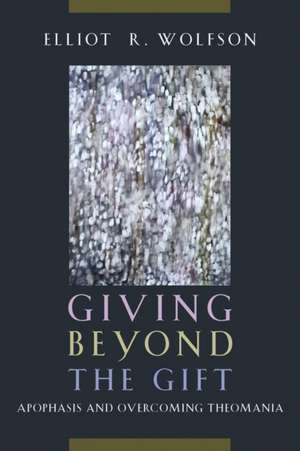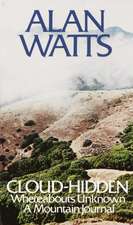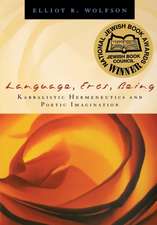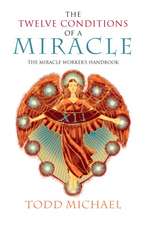Giving Beyond the Gift – Apophasis and Overcoming Theomania
Autor Elliot R. Wolfsonen Limba Engleză Hardback – 2 feb 2014
| Toate formatele și edițiile | Preț | Express |
|---|---|---|
| Paperback (1) | 307.07 lei 6-8 săpt. | |
| Fordham University Press – 31 ian 2014 | 307.07 lei 6-8 săpt. | |
| Hardback (1) | 778.55 lei 6-8 săpt. | |
| ME – Fordham University Press – 2 feb 2014 | 778.55 lei 6-8 săpt. |
Preț: 778.55 lei
Preț vechi: 1011.11 lei
-23% Nou
Puncte Express: 1168
Preț estimativ în valută:
148.98€ • 159.31$ • 124.21£
148.98€ • 159.31$ • 124.21£
Carte tipărită la comandă
Livrare economică 18 aprilie-02 mai
Preluare comenzi: 021 569.72.76
Specificații
ISBN-13: 9780823255702
ISBN-10: 0823255700
Pagini: 576
Dimensiuni: 166 x 241 x 45 mm
Greutate: 0.91 kg
Ediția:New.
Editura: ME – Fordham University Press
ISBN-10: 0823255700
Pagini: 576
Dimensiuni: 166 x 241 x 45 mm
Greutate: 0.91 kg
Ediția:New.
Editura: ME – Fordham University Press
Recenzii
"We are used to apophatic theology in the service of Christianity. Here, though, Elliot Wolfson brings his deep knowledge of Kabbalah and modern Jewish thought to a rich consideration of apophaticism in Judaism. His readings of Buber, Cohen, Derrida, Levinas, Rosenzweig, and Wyschogrod are nothing less than riveting, as are his readings of thinkers such as Heidegger and Marion. This is a book that all students of modern Jewish thought and its interactions with European philosophy will want to read." - Kevin Hart, The University of Virginia"This book, at once meticulous and daring, makes an important contribution to theologyone that may end up, uncomfortably, moving the discourse beyond itself. The argument is developed through a remarkable combination of reason, mysticism, analysis of experience, and historical knowledge." - Karmen MacKendrick, Le Moyne CollegeThis is a wonderful contribution to the field of philosophy and theology by one of the most important thinkers writing in English. His command of the material is masterful and his argument persuasive. It is outstanding and a real intellectual tour de force." - Aaron W. Hughes, University of Rochester
"We are used to apophatic theology in the service of Christianity. Here, though, Elliot Wolfson brings his deep knowledge of Kabbalah and modern Jewish thought to a rich consideration of apophaticism in Judaism. His readings of Buber, Cohen, Derrida, Levinas, Rosenzweig, and Wyschogrod are nothing less than riveting, as are his readings of thinkers such as Heidegger and Marion. This is a book that all students of modern Jewish thought and its interactions with European philosophy will want to read." - Kevin Hart, The University of Virginia "This book, at once meticulous and daring, makes an important contribution to theology - one that may end up, uncomfortably, moving the discourse beyond itself. The argument is developed through a remarkable combination of reason, mysticism, analysis of experience, and historical knowledge." - Karmen MacKendrick, Le Moyne College "This is a wonderful contribution to the field of philosophy and theology by one of the most important thinkers writing in English. His command of the material is masterful and his argument persuasive. It is outstanding and a real intellectual tour de force." - Aaron W. Hughes, University of Rochester
"We are used to apophatic theology in the service of Christianity. Here, though, Elliot Wolfson brings his deep knowledge of Kabbalah and modern Jewish thought to a rich consideration of apophaticism in Judaism. His readings of Buber, Cohen, Derrida, Levinas, Rosenzweig, and Wyschogrod are nothing less than riveting, as are his readings of thinkers such as Heidegger and Marion. This is a book that all students of modern Jewish thought and its interactions with European philosophy will want to read." - Kevin Hart, The University of Virginia "This book, at once meticulous and daring, makes an important contribution to theology - one that may end up, uncomfortably, moving the discourse beyond itself. The argument is developed through a remarkable combination of reason, mysticism, analysis of experience, and historical knowledge." - Karmen MacKendrick, Le Moyne College "This is a wonderful contribution to the field of philosophy and theology by one of the most important thinkers writing in English. His command of the material is masterful and his argument persuasive. It is outstanding and a real intellectual tour de force." - Aaron W. Hughes, University of Rochester














